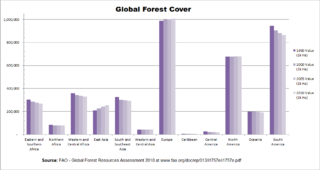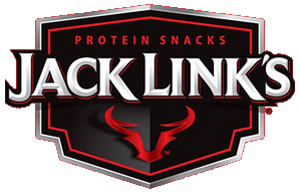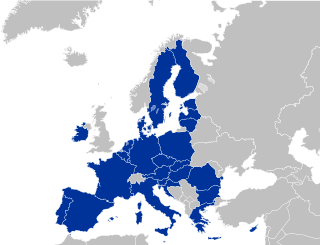
Illegal logging is the harvest, transportation, purchase or sale of timber in violation of laws. The harvesting procedure itself may be illegal, including using corrupt means to gain access to forests; extraction without permission, or from a protected area; the cutting down of protected species; or the extraction of timber in excess of agreed limits. Illegal logging is a driving force for a number of environmental issues such as deforestation, soil erosion and biodiversity loss which can drive larger scale environmental crisis such as climate change and other forms of environmental degradation.

Cargill, Inc., is a privately held American global food corporation based in Minnetonka, Minnesota, and incorporated in Wilmington, Delaware. Founded in 1865, it is the largest privately held corporation in the United States in terms of revenue. If it were a public company, it would rank, as of 2015, number 15 on the Fortune 500, behind McKesson and ahead of AT&T. Cargill has frequently been the subject of criticism related to the environment, human rights, finance, and other ethical considerations.

The meat packing industry handles the slaughtering, processing, packaging, and distribution of meat from animals such as cattle, pigs, sheep and other livestock. Poultry is generally not included. This greater part of the entire meat industry is primarily focused on producing meat for human consumption, but it also yields a variety of by-products including hides, dried blood, protein meals such as meat & bone meal, and, through the process of rendering, fats.

JBS USA Holdings, Inc. is an American food processing company and a wholly owned subsidiary of the Brazilian company JBS S.A. The subsidiary was created when JBS entered the U.S. market in 2007 with its purchase of Swift & Company. JBS specializes in Wagyu Beef, the only certified Japanese Cattle distributer on the entire eastern U.S. seaboard
Human rights in Finland are freedom of speech, religion, association, and assembly as upheld in law and in practice. Individuals are guaranteed basic rights under the constitution, by legislative acts, and in treaties relating to human rights ratified by the Finnish government. The constitution provides for an independent judiciary.

Ractopamine is an animal feed additive used to promote leanness and increase food conversion efficiency in farmed animals in many countries (180), but banned in others. Pharmacologically, it is a phenol-based TAAR1 agonist and β adrenoreceptor agonist that stimulates β1 and β2 adrenergic receptors. It is most commonly administered to animals for meat production as ractopamine hydrochloride. It is the active ingredient in products marketed in the US as Paylean for swine, Optaflexx for cattle, and Topmax for turkeys. It was developed by Elanco Animal Health, a division of Eli Lilly and Company.

Brazil once had the highest deforestation rate in the world and in 2005 still had the largest area of forest removed annually. Since 1970, over 700,000 square kilometres (270,000 sq mi) of the Amazon rainforest have been destroyed. In 2001, the Amazon was approximately 5,400,000 square kilometres (2,100,000 sq mi), which is only 87% of the Amazon's original size.
Fern is a Dutch foundation created in 1995. It is an international Non-Governmental Organization (NGO) set up to keep track of the European Union's involvement in forests and coordinate NGO activities at the European level. Fern works to protect forests and the rights of people who depend on them.

JBS S.A. is a Brazilian company that is the largest meat processing company in the world, producing factory processed beef, chicken and pork, and also selling by-products from the processing of these meats. It is headquartered in São Paulo. It was founded in 1953 in Anápolis, Goiás. As of 2017, the company had 150 industrial plants around the world. J&F Investimentos is a 42% indirect shareholder in JBS S.A., which is listed on American stock markets as JBSAY. J&F Investimentos is wholly owned by Joesley Batista and Wesley Batista. As of May 2017, JBS S.A. remains the world's biggest butcher.

The Amazon rainforest is the largest rainforest in the world, covering an area of 6,000,000 km2. It represents over half of the planet's rainforests, and comprises the largest and most biodiverse tract of tropical rainforest in the world. This region includes territory belonging to nine nations. The majority of the forest is contained within Brazil, with 60%, followed by Peru with 13%, Colombia with 10%, and with minor amounts in Venezuela, Ecuador, Bolivia, Guyana, Suriname and French Guiana.

Rates and causes of deforestation vary from region to region around the world. In 2009, 2/3 of the world's forests were in just 10 countries: 1) Russia, 2) Brazil, 3) Canada, 4) United States, 5) China, 6) Australia, 7) Democratic Republic of the Congo, 8) Indonesia, 9) India, and 10) Peru.
This article addresses various criticisms of Cargill Inc, a privately held "agribusiness" multinational giant" with operations in 70 countries, and its headquarters in Minneapolis, Minnesota, in the United States. Cargill Inc, which has been owned by the Cargill family for 154 years, is the largest privately owned corporation in the United States, with an annual revenue of $113.5 billion in 2019.
Swedwatch is an independent, non-profit organization reporting on business relations in developing countries. Swedwatch is an independent research organization whose task is to critically examine business relations with developing countries focusing on environmental and social concerns as per international human rights law and standards. Swedwatch have five member organizations: Diakonia, Fair Trade Center, Friends of the Earth, Swedish Latin America group, The Swedish Society for Nature Conservation (SSNC) and Church of Sweden.

Link Snacks, Inc., better known as Jack Link's, is an American snack company best known as the producer and marketer of the eponymous brand of beef jerky. It was founded by John 'Jack' Link in 1986, using his great-grandfather's recipes. They are known for their "Messin' with Sasquatch" ads.

The cabinet of Juha Sipilä was the 74th government of Finland. It was formed following the parliamentary election of 2015 and formally appointed by President Sauli Niinistö on 29 May 2015. Since June 2017, the cabinet has consisted of a coalition formed by the Centre Party, Blue Reform and the National Coalition Party. The cabinet's Prime Minister was Juha Sipilä.
The Operation Carne Fraca, is an action started on March 17, 2017 and enforced by the Federal Police of Brazil, that country's federal police force, which investigated some of the country's largest meat processing companies.

The European Union–Mercosur free trade agreement is a free trade agreement on which the EU and Mercosur reached agreement in principle in 2019. The deal was announced on 28 June at the 2019 G20 Osaka summit after twenty years of negotiations. Although there is agreement in principle, the final texts have not been finalised, signed or ratified and therefore have not entered into force. If ratified, it would represent the largest trade deal struck by both the EU and Mercosur in terms of citizens involved. The trade deal is part of a wider Association Agreement between the two blocs. Besides trade, the association agreement would also deal with cooperation and political dialogue. Negotiations on these two parts were concluded on 18 June 2020.

The 2019 Amazon rainforest wildfires season saw a year-to-year surge in fires occurring in the Amazon rainforest and Amazon biome within Brazil, Bolivia, Paraguay, and Peru during that year's Amazonian tropical dry season. Fires normally occur around the dry season as slash-and-burn methods are used to clear the forest to make way for agriculture, livestock, logging, and mining, leading to deforestation of the Amazon rainforest. Such activity is generally illegal within these nations, but enforcement of environmental protection can be lax. The increased rates of fire counts in 2019 led to international concern about the fate of the Amazon rainforest, which is the world's largest terrestrial carbon dioxide sink and plays a significant role in mitigating global warming.
On May 30, 2021, JBS S.A., a Brazil-based meat processing company, suffered a cyberattack, disabling its beef and pork slaughterhouses. The attack impacted facilities in the United States, Canada, and Australia.
Mehiläinen is a concern for social and healthcare services for both public and private customers, active in Finland, Sweden, Germany and Estonia. The company's largest owner is the Luxembourgian CVC Capital.












